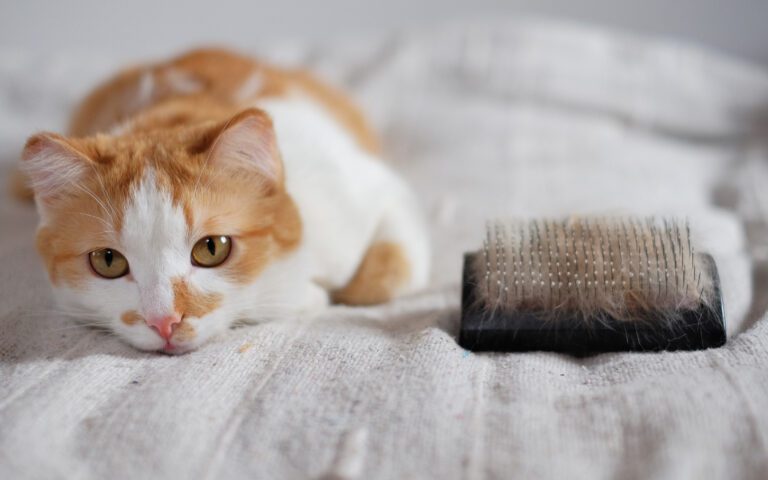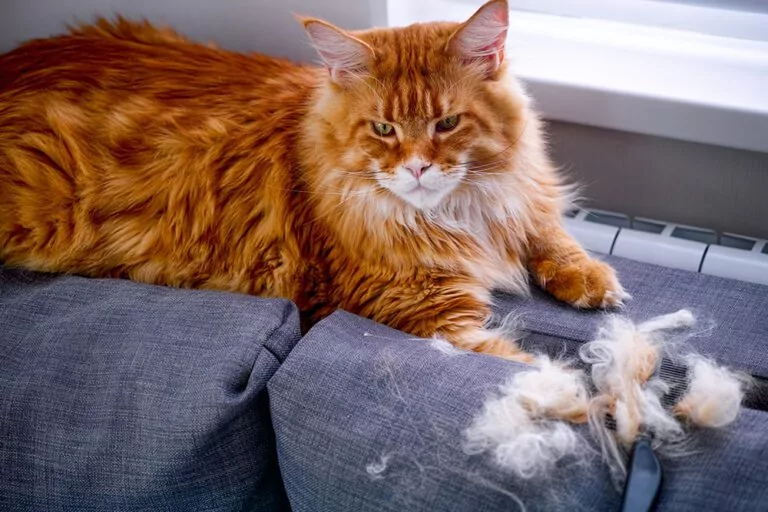Cats are adored for many reasons, not least of which is their luxurious fur. However, as a cat owner, you may have noticed patches of baldness or an increase in shedding, causing you to ask, “Why is my cat losing hair?”
At Coyne Veterinary Center in Crown Point, IN, we regularly field questions about feline hair loss. This comprehensive guide will explore common causes of cats losing hair and how to ensure your furry friend remains in optimal health.
The Normalcy of Cat Hair Loss
Cats naturally shed their hair throughout the year, with shedding increasing during the warmer months. However, if your cat is losing hair in clumps or developing bald spots, this could indicate a health problem. Recognizing the difference between normal shedding and abnormal hair loss is crucial in maintaining your pet’s health.
Common Causes of Cats Losing Hair
Understanding why your cat is losing hair begins with knowledge of the most common causes.
Parasites: Fleas, Mites, and Lice
External parasites, such as fleas, mites, or lice, are common culprits of feline hair loss. An infestation can lead to excessive scratching, causing the hair to fall out.
Fungal Infections: Ringworm
Ringworm, a common fungal infection, can also cause hair loss in cats. This condition often results in round, bald patches on your pet’s skin.
Allergic Reactions and Dermatitis
Allergies to certain foods, substances, or environmental factors can lead to dermatitis, an inflammation of the skin, resulting in hair loss.
Stress-Induced Hair Loss
Cats may over-groom or scratch excessively when stressed, leading to hair loss. Changes in the household or daily routine can often trigger this.
Age-Related Hair Loss
As your cat ages, they may naturally lose more hair than when they were younger. However, this should be a gradual process rather than a sudden or excessive loss.

Diagnosing Hair Loss in Cats at Coyne Veterinary Center
If you’re worried about your cat’s hair loss, it’s time to consult a professional. At Coyne Veterinary Center, our highly experienced team is adept at diagnosing and treating feline hair loss. Using advanced diagnostic tools and techniques, we’ll ascertain the root cause of your pet’s hair loss.
Treatment varies depending on the diagnosis and may range from medicated shampoos for parasites or fungal infections to dietary changes for allergies. In some cases, resolving underlying stress or managing age-related health issues may be necessary.
How to Prevent Cat Hair Loss
Prevention starts with maintaining your cat’s overall health. Regular vet check-ups, a balanced diet, parasite prevention, and stress management can all help prevent hair loss in cats.
Your cat’s hair loss could be a sign of an underlying health issue. But with proper care, vigilance, and regular veterinary checks, your cat can continue to thrive despite these challenges. Let us help you ensure your feline friend is living their best, fluffiest life.
In the end, understanding “Why is my cat losing hair?” could lead you to a deeper understanding of your cat’s overall health needs and well-being.
Remember, the team at Coyne Veterinary Center is here to support you and your pet in every step of their health journey. If you’re concerned about your cat’s hair loss, don’t hesitate to call us at (219) 267-1700 for an appointment, or book an appointment online with us today!




